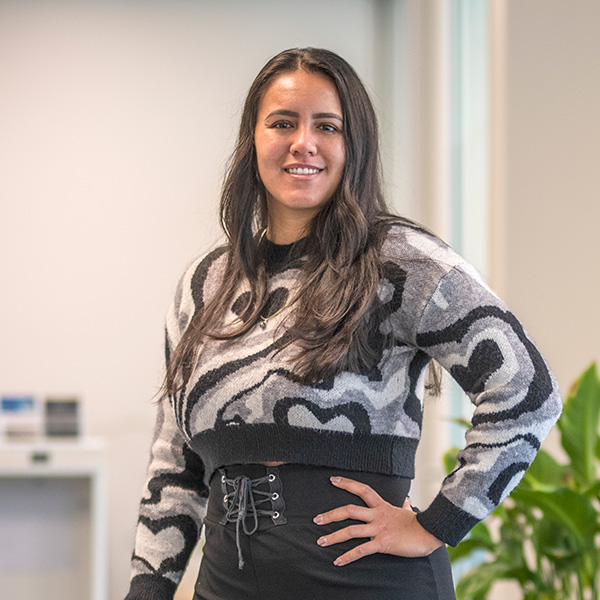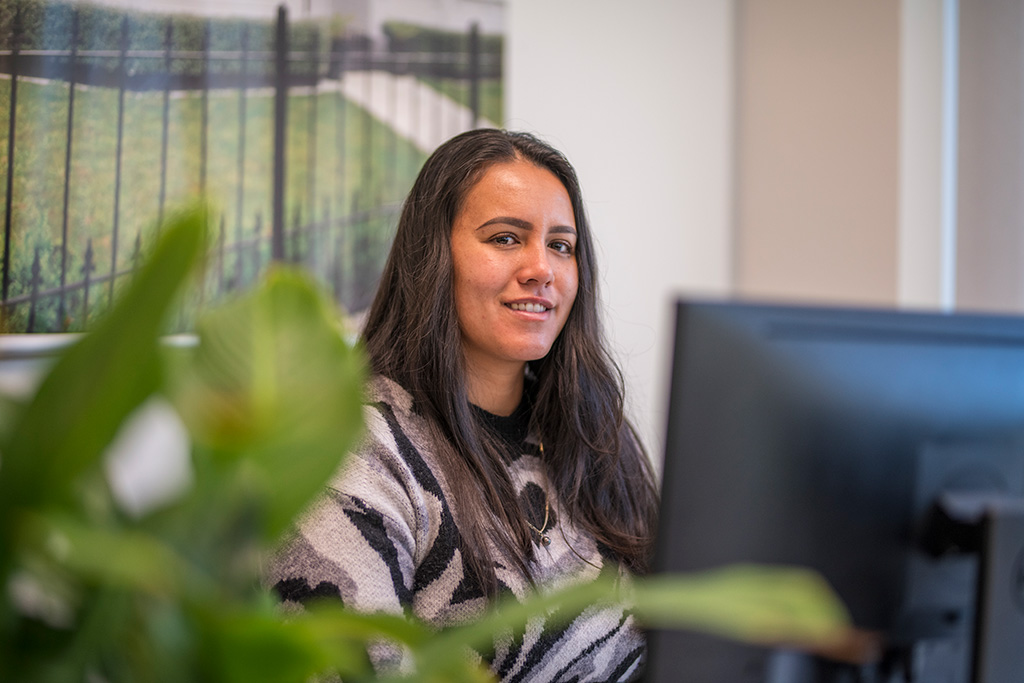 Born in Australia, Chantelle is from the Cook Islands and had never heard of financial advising as a profession before starting her current role.
Born in Australia, Chantelle is from the Cook Islands and had never heard of financial advising as a profession before starting her current role.
During the Covid-19 pandemic, she got stuck in New Zealand and could not go back to the Cook Islands, so needed a part time job in the meantime. Dylan Mann, director at The Advice Hub, was looking for a personal assistant and Chantelle was recommended for the job by one of her rugby teammates.
Dylan employed Chantelle and quickly saw how well she worked with many of his clients. He said, “hey, why don’t you become a financial advisor?”
It’s easy to see why Dylan found so much value in having her accompany him when meeting new clients – especially if they are of Pacific descent. He says his clients found it easier to build a trusting relationship with Chantelle, making the process of understanding their financial challenges much more effective.
“Everyone says that money doesn’t make you happy, but it does help to put a roof over your head and bring bread to the table,” Chantelle says. “We’ve had [clients] who have never heard of financial advisors, to those who are in major debt and need help coming back from that, to those who do have money and already know what they’re doing – they just need someone to go ‘cool there it is and here’s how you make more money’.”
Chantelle has seen how the world of finance has cultural and gendered nuance. It was only when she reached her 20s at university that she started developing financial literacy, which was challenging for her family to adjust to.
“My dad had always provided for us. Once I got to university, I realised that I won’t be able to always rely on my father, that I was going to need to do everything myself. Breaking out of that was hard for my dad because he was used to being the provider. But for me, it was a lot easier, realising that I enjoy spending my own money that I have worked hard for.”
Dylan told Chantelle about the Open Polytechnic course for financial advice, the New Zealand Certificate in Financial Services level 5, and she flew through it. “I’m a book nerd, I love studying.”
After she qualified, Dylan then threw her straight in the deep end, and she has loved working in the industry ever since. This hands-on approach to her career path has served Chantelle well. Noticing the lack of diversity in her field, Chantelle hopes that through mentoring she can highlight pathways for other Pacific communities and Māori to enter the industry – especially women.
“We recently had a conference for financial advisors, and I noticed I was the only Pacific Islander there – there was probably one other Māori woman, but the rest were Caucasian. About 80 percent were males and 20 percent were women.”

Chantelle’s current role is now a financial mentor advisor, where she advises and still helps with investments and insurance, while also mentoring and tutoring new advisors coming through.
“We also do a scholarship programme, and we are bringing through a lot of Māori and Pacific people. It is open to everyone but if we’re being honest there’s not that many Pacific or Māori in this industry, so we’re trying to create a pathway to diversify the financial industry by introducing more Māori and Pacific people into the community.”
Alongside pushing for Pacific and Māori representation in the industry, Chantelle also points out that the idea that financial advisors are only for people who can afford it is damaging for communities, saying that it makes whānau feel like they don’t deserve access to financial services.
“We don’t need to say ‘hey, you only have $1000 saved up, maybe wait and come back when you have a few zeros at the end’ we can start them right then and there. We can help them get where they need to be on that journey, or to be comfortable at least.
“At the end of the day, the whole purpose of why I wanted to be a financial advisor is to help people.”